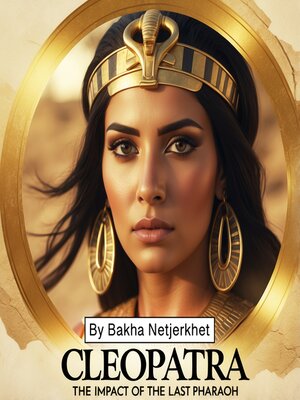
Sign up to save your library
With an OverDrive account, you can save your favorite libraries for at-a-glance information about availability. Find out more about OverDrive accounts.
Find this title in Libby, the library reading app by OverDrive.



Search for a digital library with this title
Title found at these libraries:
| Library Name | Distance |
|---|---|
| Loading... |
This audiobook is narrated by a digital voice.
When we speak of Cleopatra VII Philopator, the final pharaoh of ancient Egypt, we encounter one of history's most enduring enigmas. Born in 69 BCE into the Ptolemaic dynasty that had ruled Egypt for three centuries, Cleopatra inherited a kingdom teetering on the precipice of Roman absorption. Yet through sheer force of intellect, political acumen, and an understanding of power that transcended the traditional boundaries of her time, she would become the most influential woman of the ancient world.
The Egypt that Cleopatra inherited was not the Egypt of the pyramid builders or the great conquering pharaohs of the New Kingdom. By the first century BCE, Egypt had become a client state of Rome in all but name, its independence hanging by the thinnest of threads. The Ptolemaic dynasty, founded by one of Alexander the Great's generals, had maintained their Greek identity and customs while ruling over an ancient Egyptian civilization that they never fully embraced or understood. Into this complex political and cultural landscape stepped a young woman who would prove herself capable of navigating the treacherous waters of international diplomacy while simultaneously attempting to restore Egypt's former glory.
Cleopatra's education was extraordinary for any person of her era, let alone a woman. Unlike her predecessors, she learned to speak Egyptian alongside her native Greek, making her the first Ptolemaic ruler in three hundred years to communicate directly with her Egyptian subjects. She also mastered Latin, Hebrew, Arabic, and several other languages, understanding that in an interconnected Mediterranean world, communication was power. Her tutors, likely drawn from the great Library of Alexandria, ensured that she was well-versed in mathematics, philosophy, rhetoric, and the arts of governance.







